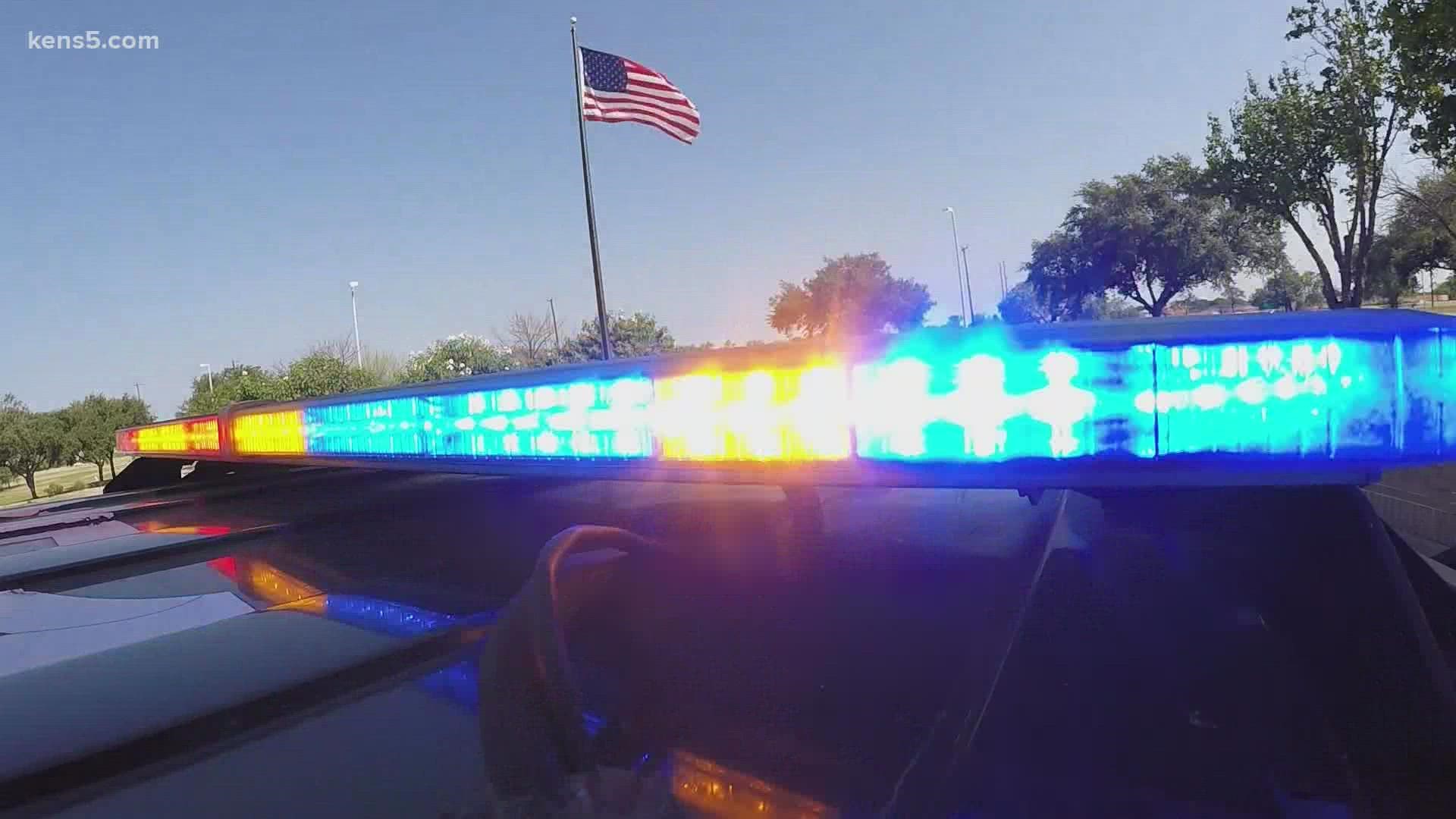SAN ANTONIO — A police training center is bound to come with the sound of tires screeching, drills for deals with explosives rattling the surrounding neighborhood and blaring sirens. San Antonio Police officials admit to the existence of each, in the name of public safety.
But SAPD says it's not trying to create problems or be a noisy neighbor.
"It's our responsibility to reach out to the public and to discover some of the issues that San Antonians have that we can address to make San Antonio a better place," Officer Joel Pope said.
Pope is with the department's recently formed Office of Community
Engagement. In his 24 years with SAPD, he's also served as a driving instructor at the police training academy.
"Our responsibility is to train cadets in emergency driving. So that includes night driving, it includes day driving," Pope said. "It includes having sirens on so that the cadets are able to inoculate themselves from stress while driving in a code three manner."
But the repetitive training an wear on the facility's southeast-San Antonio neighbors. Homeowners who did not want to give their names said the explosion training is the worst. But the sirens are tiresome too.
Some said they've dismissed the sounds as the price of living in the community because the training academy came first.
Police recognize the siren noise is an issue. They've even had neighbors come to their door to complain.
"The siren noise can be loud in particular when we're running eight to 10 cars at a time during cadet class," Pope said.
Veteran officer Art Castellanos teaches at the academy as well. One of his friends lives nearby. He complained to the officer.
"I could just place myself in their shoes. I'm trying to sleep at night, because we do training at night," Castellanos said. "I would hate to hear, for eight minutes straight, just a siren going around, around in circles."
Castellanos became the lead on research for a solution. After a year of resolve analysis, he got SAPD's upper brass approval to move forward on interior sirens.
"So what we decided to do is see if we can transition from an outside source to an inside source while still maintaining the safety of the driver decibel level," he said.
He found interior sirens that allow the cadet to remain immersed in vital training and shield noise to their neighbors. A class of cadets has already tried the devices out.
"It's the first time we're using it, and we're very excited and have had positive results," Pope said.
The sirens were installed in the rear of the department's 18 training vehicles. According to the officers, the cost for all of the interiors sirens is around $4,000. Adjusting the siren's decibels was a challenge to save the hearing of future officers, they said.
"We heard it too loud. We had to make those adjustments," Castellanos said.
Accessing the siren is as easy as flipping a switch near a console for the existing siren's control.
Outside of the vehicles, the blast of the sirens quickly passes 100 decibels. Inside of the police cruisers, the new sirens drop the sound to between 75 and 85 decibels.
More importantly, no sound waves to nearby residents. Trying to tell the difference between the two sounds is not supremely distinctive. A demonstration of both modes sounds like an officer driving with the windows up as the siren runs.
The police said the Texas Commission of Law Enforcement requires cadets to train in environments like those they'll work. The sirens are considered their access to emergency events, especially in traffic.
Sirens and responding to critical calls mandate focus as human adrenaline elevates, police said.
"Their attention to things will elevate, but then it will also take away from other things that are around them," Castellanos said.
According to Pope, driving is not driving when responding to calls, especially at night.
"Driving at night is definitely different with lights and sirens in the day due to the strobe effect of the lights," Pope said.
Night training to accommodate all cadets. While SAPD can't snuff out the siren noise altogether, the department is more considerate of the time when exterior sirens get used.
"If we don't hear any complaints, that's the best part," Castellanos said.

